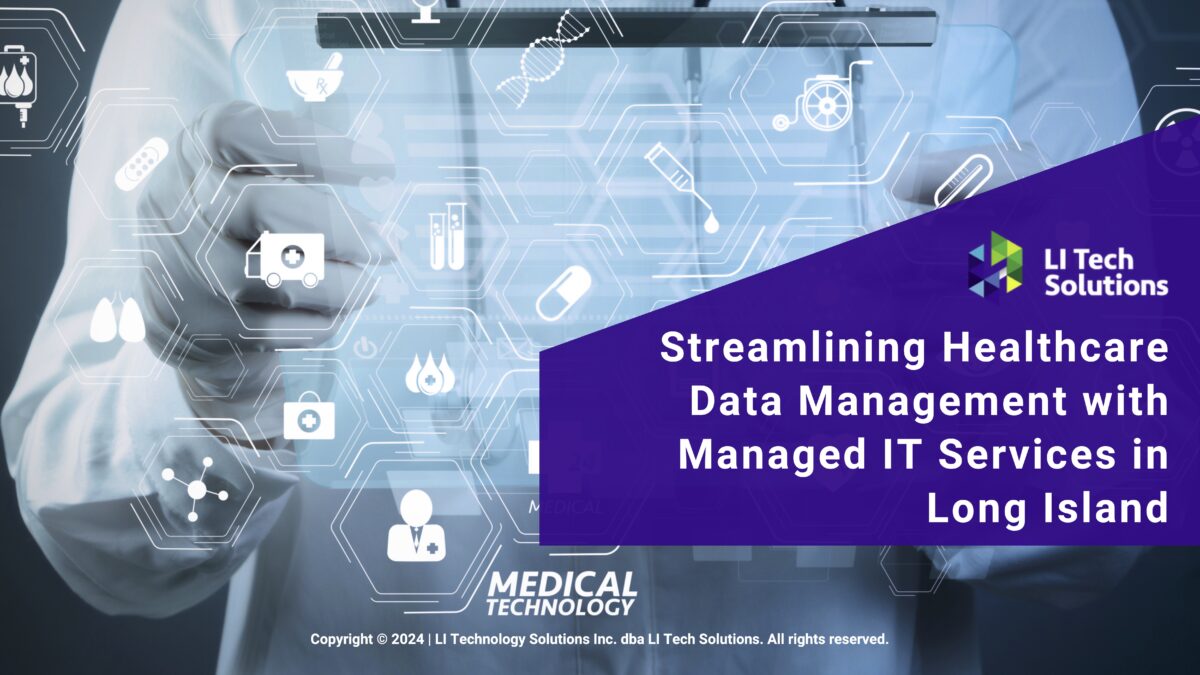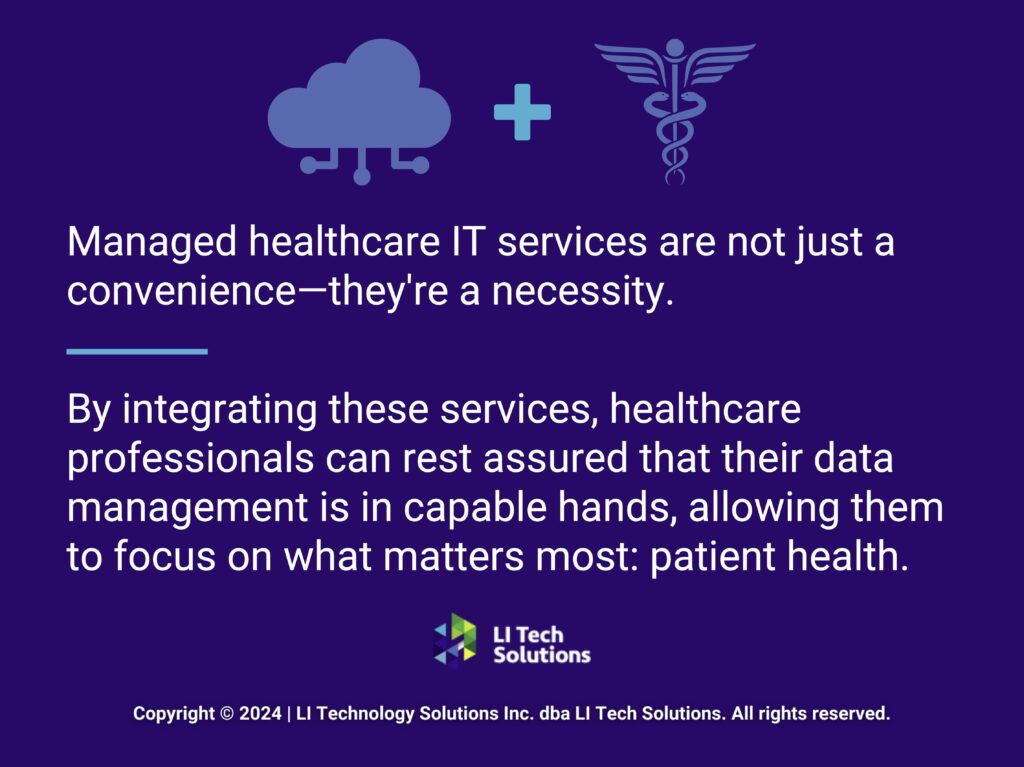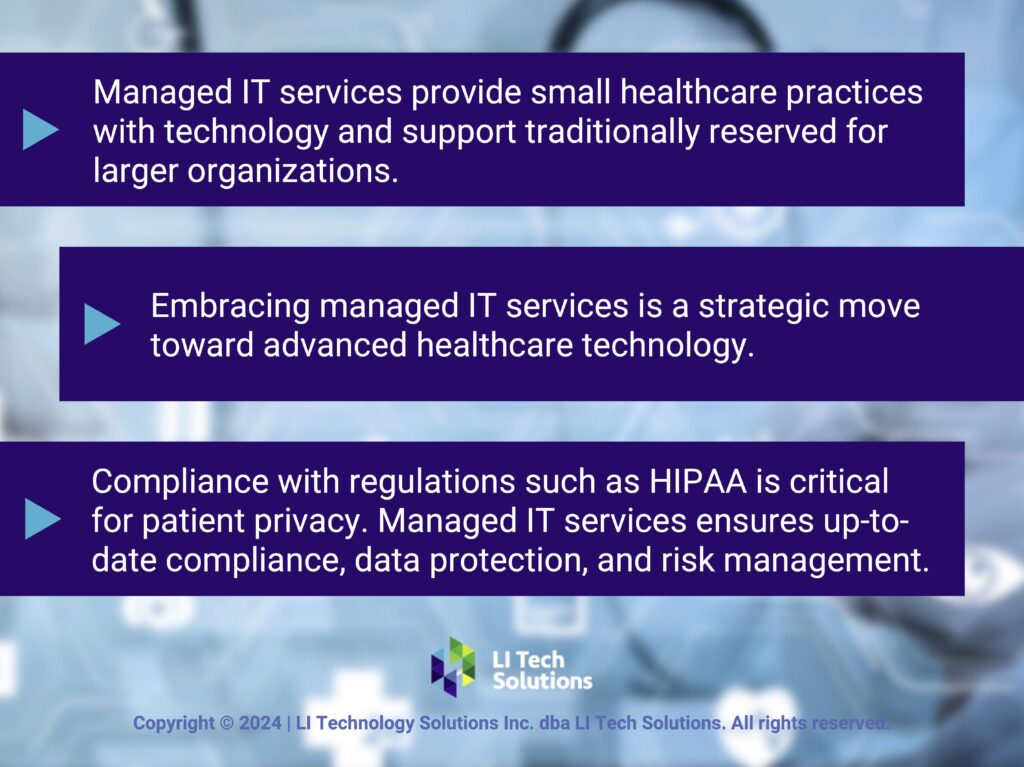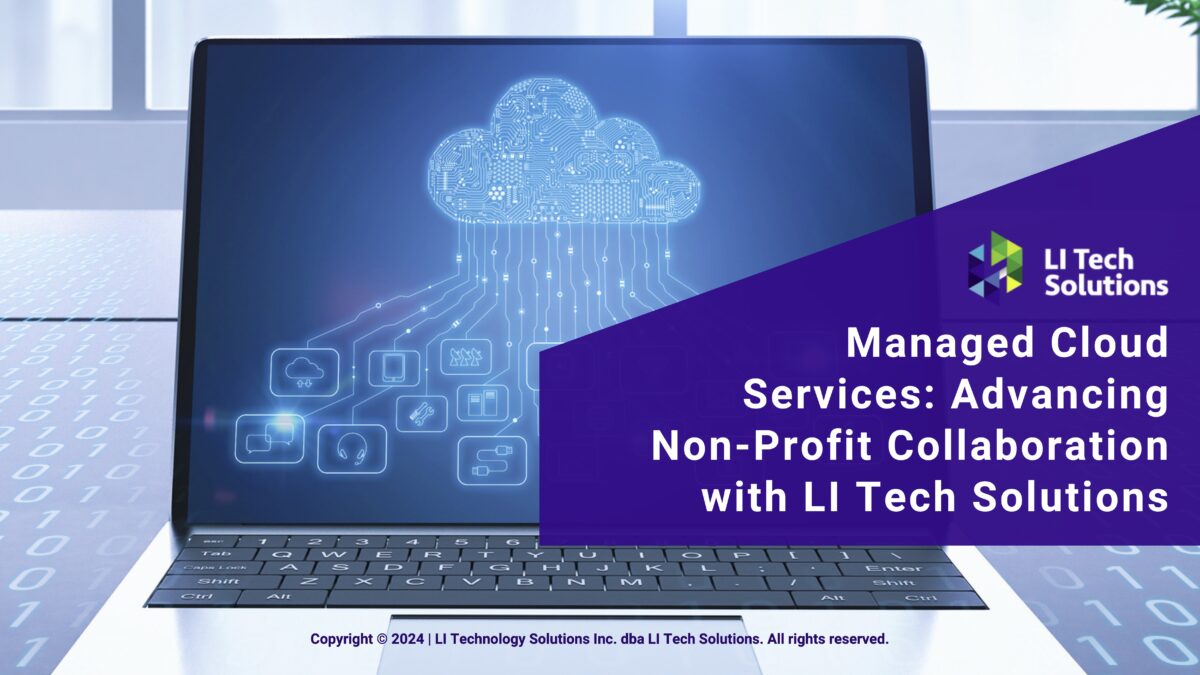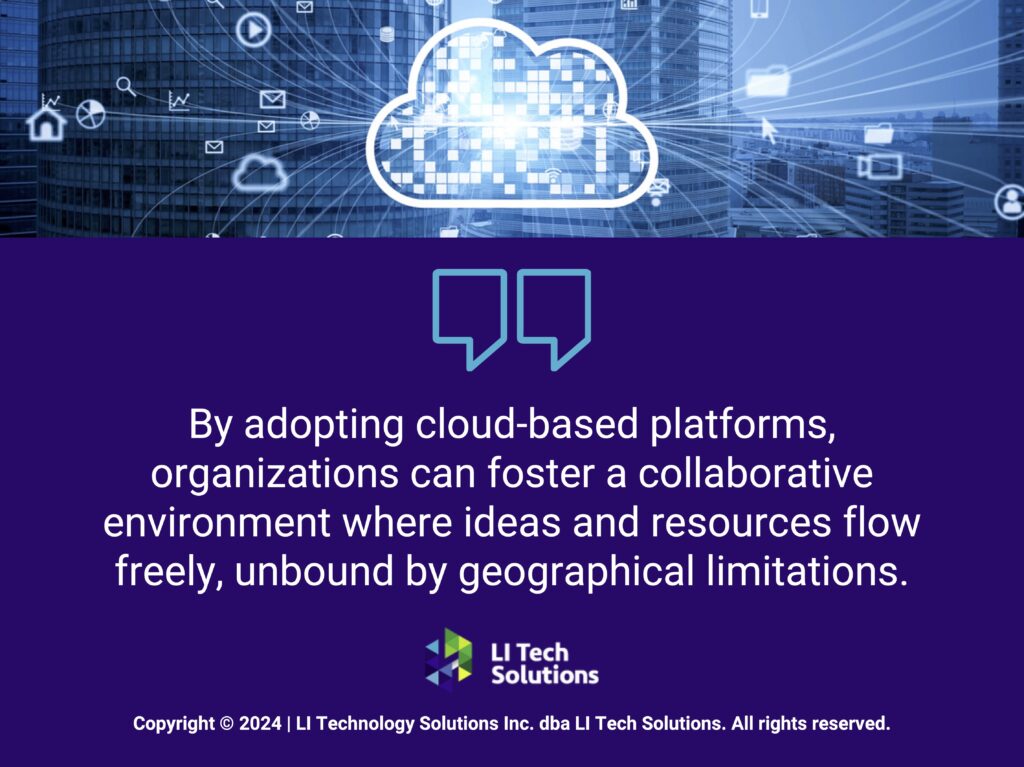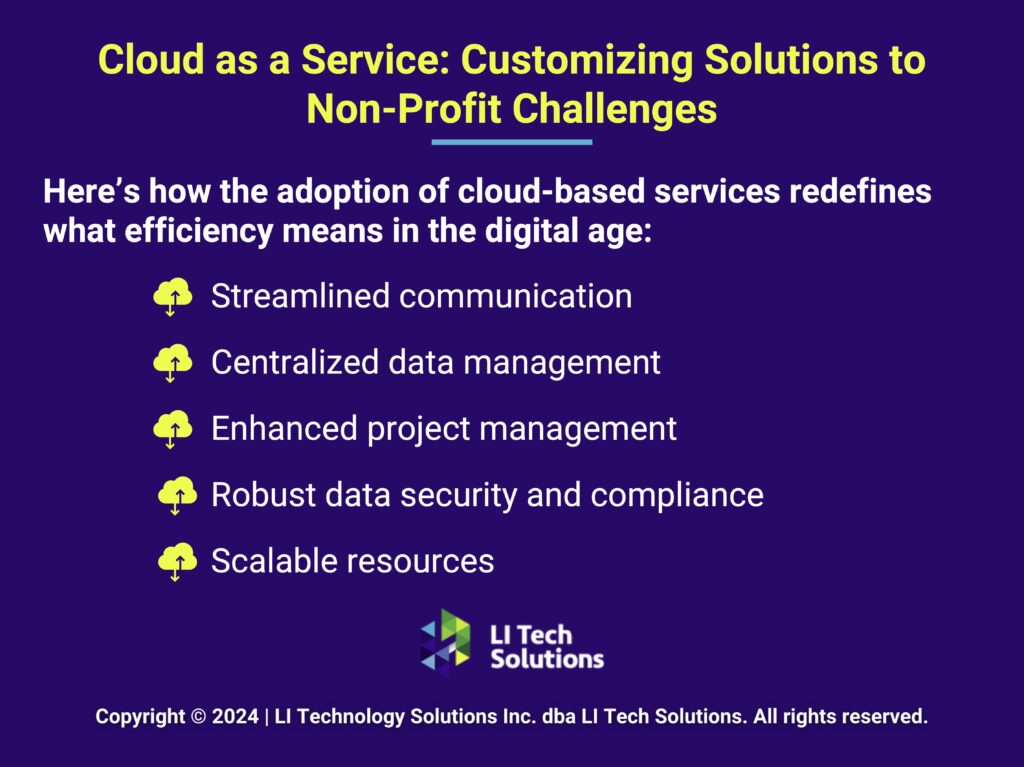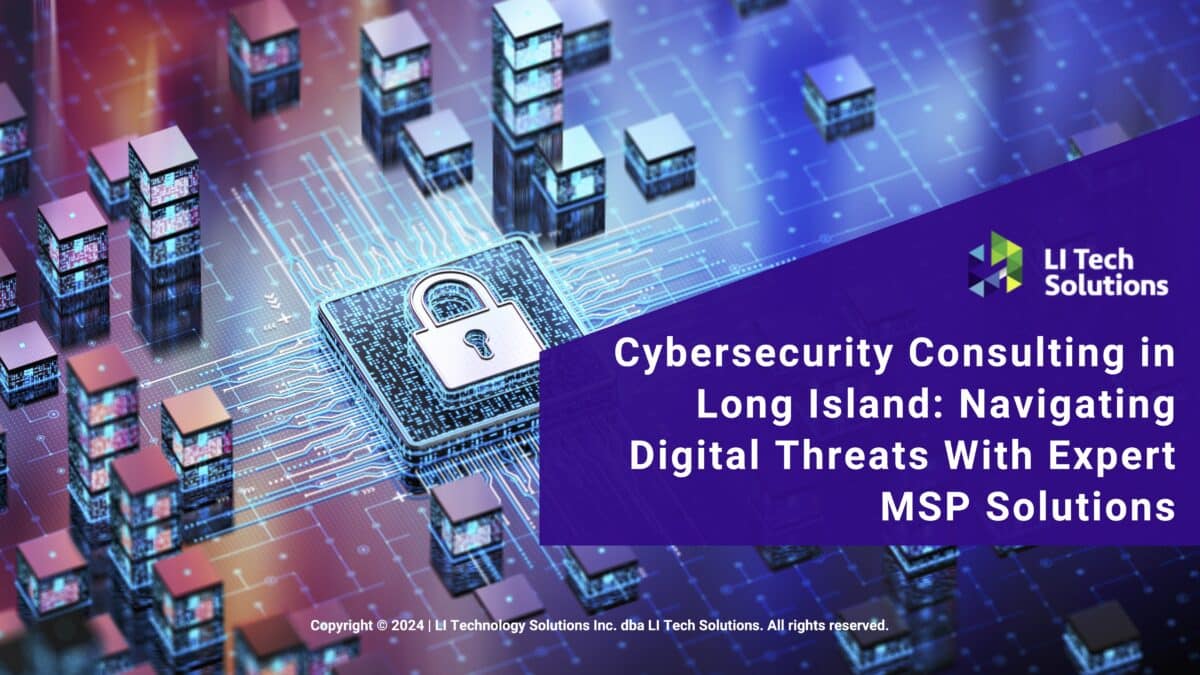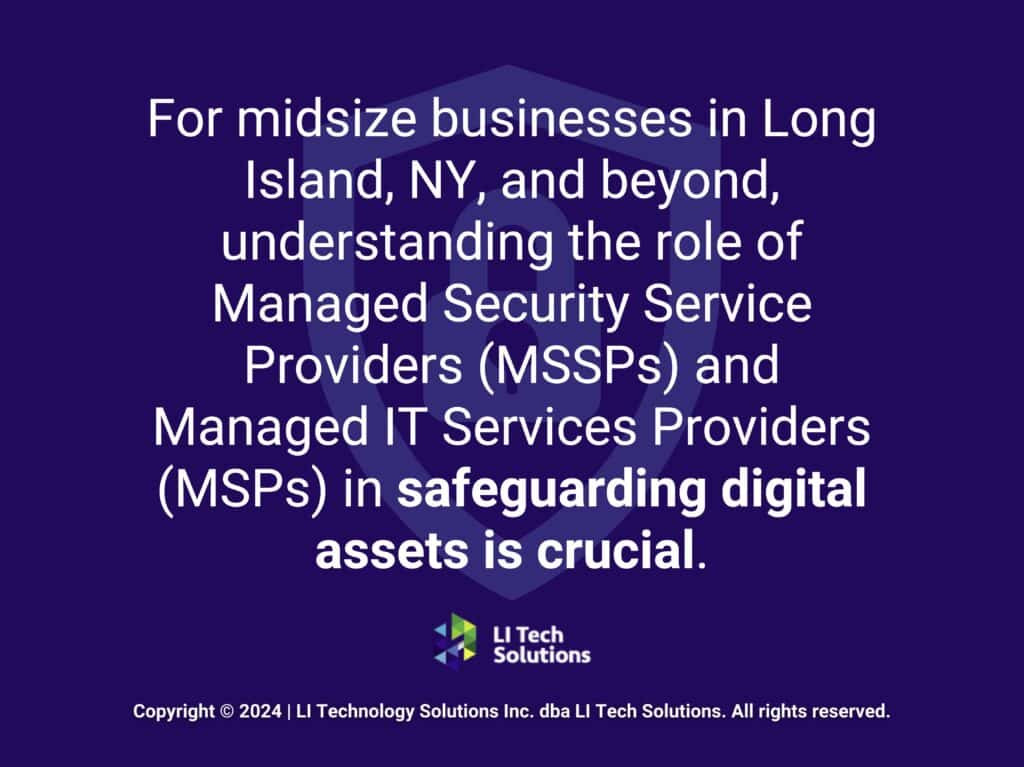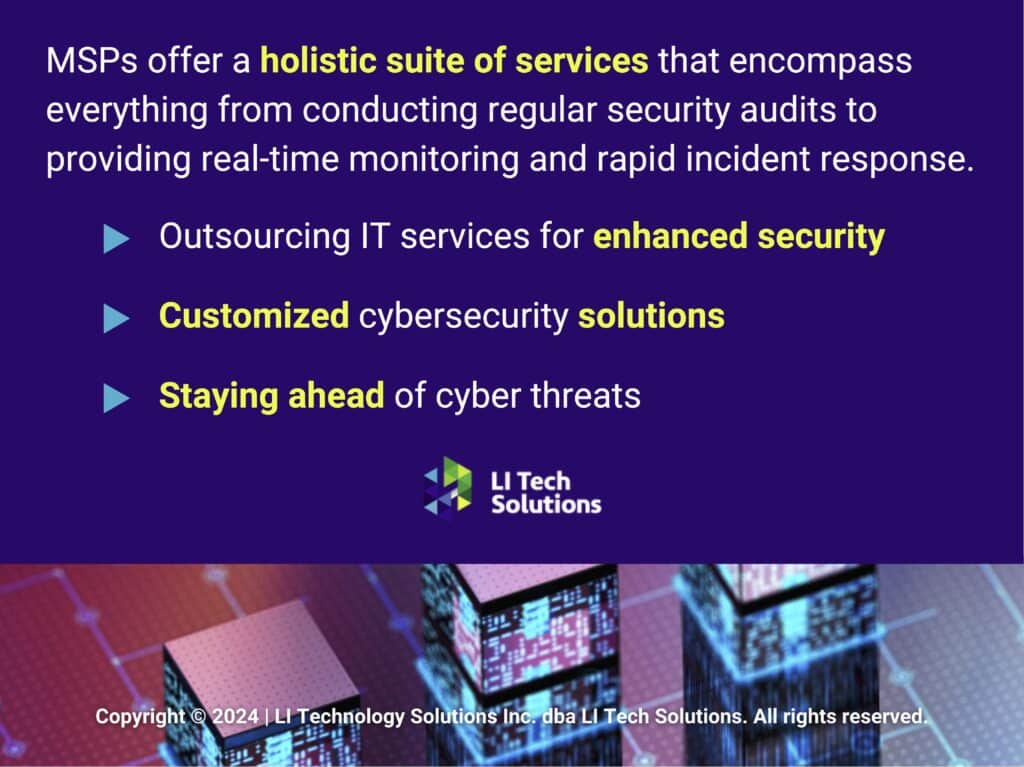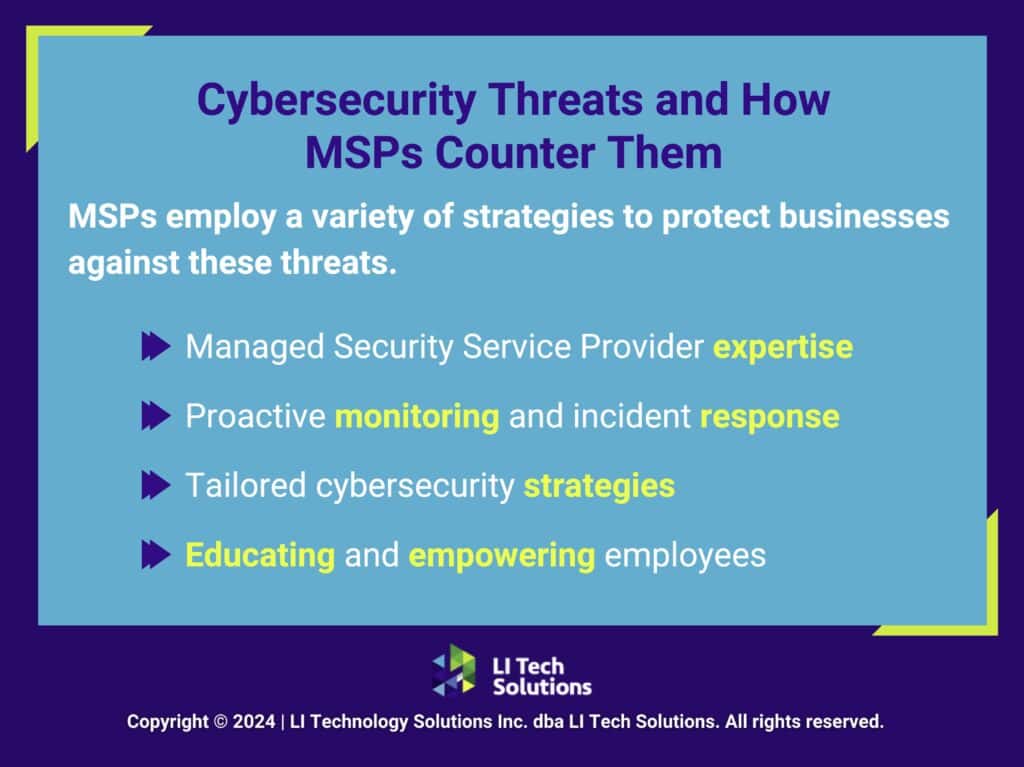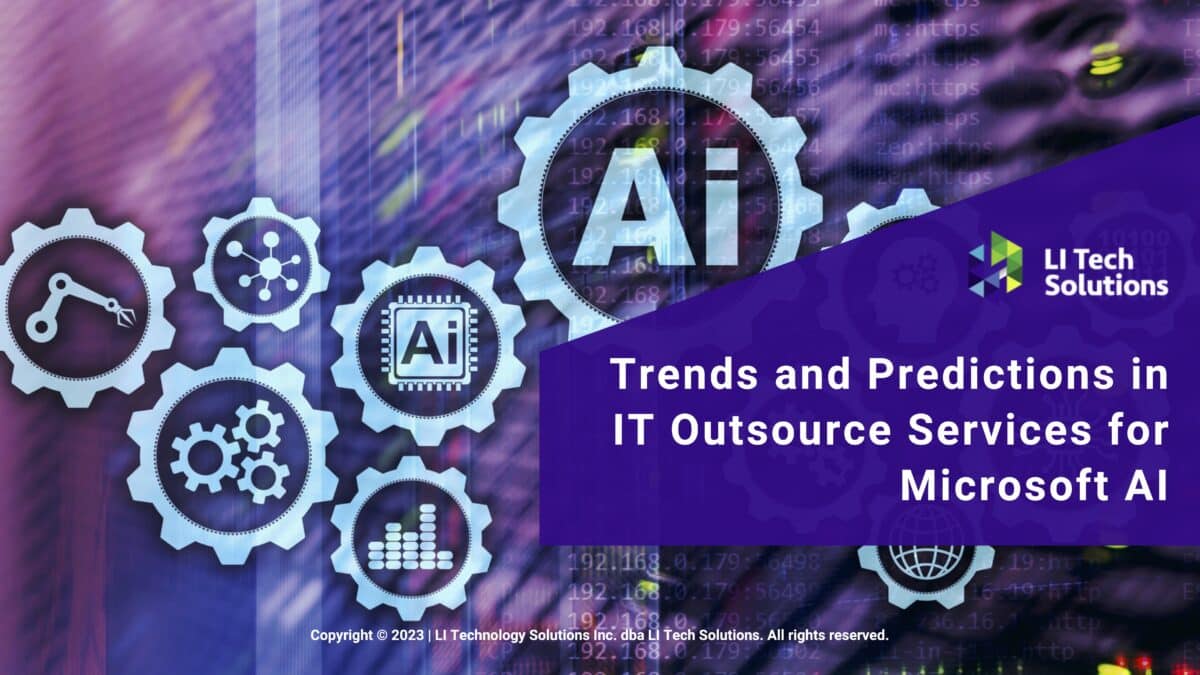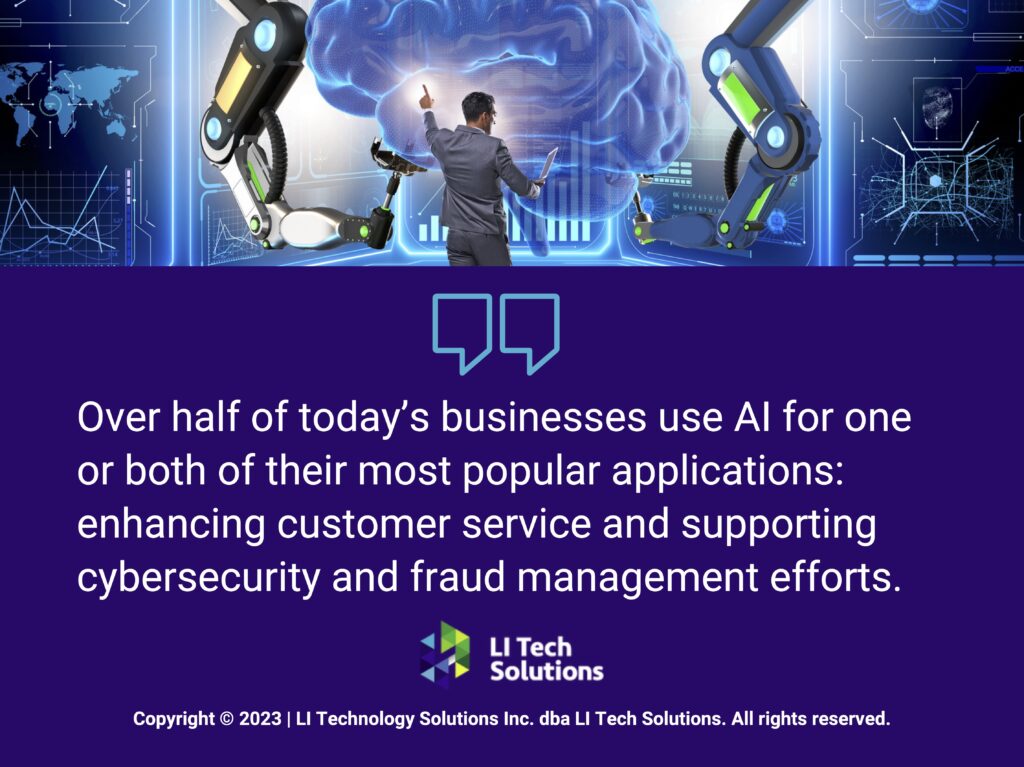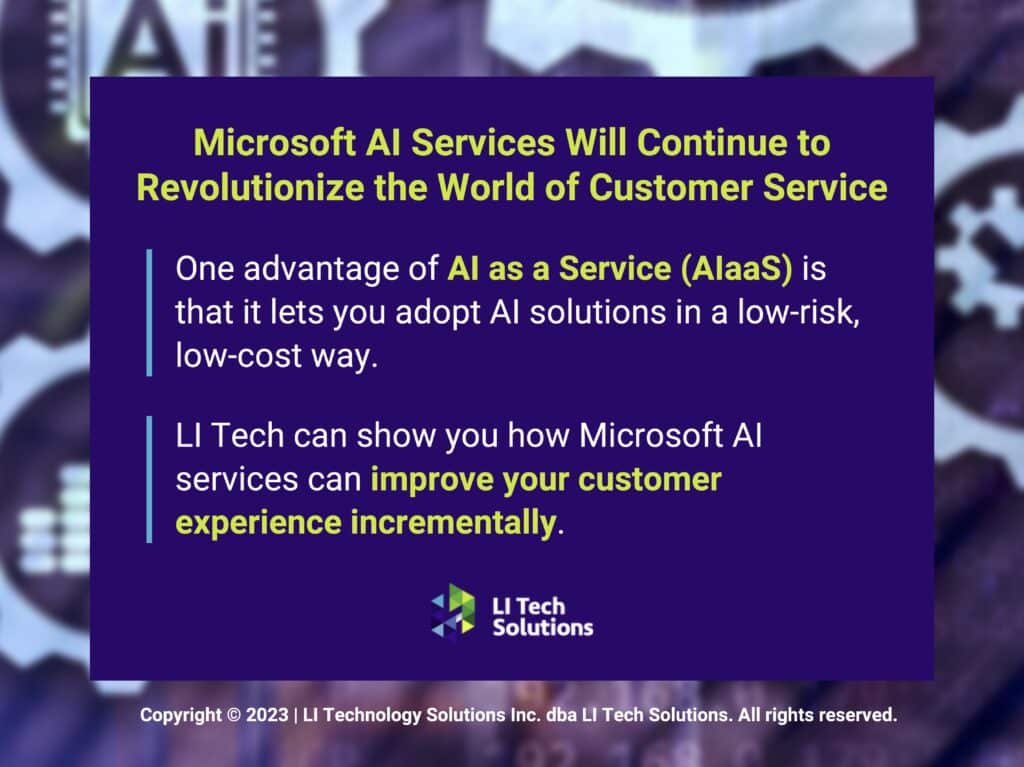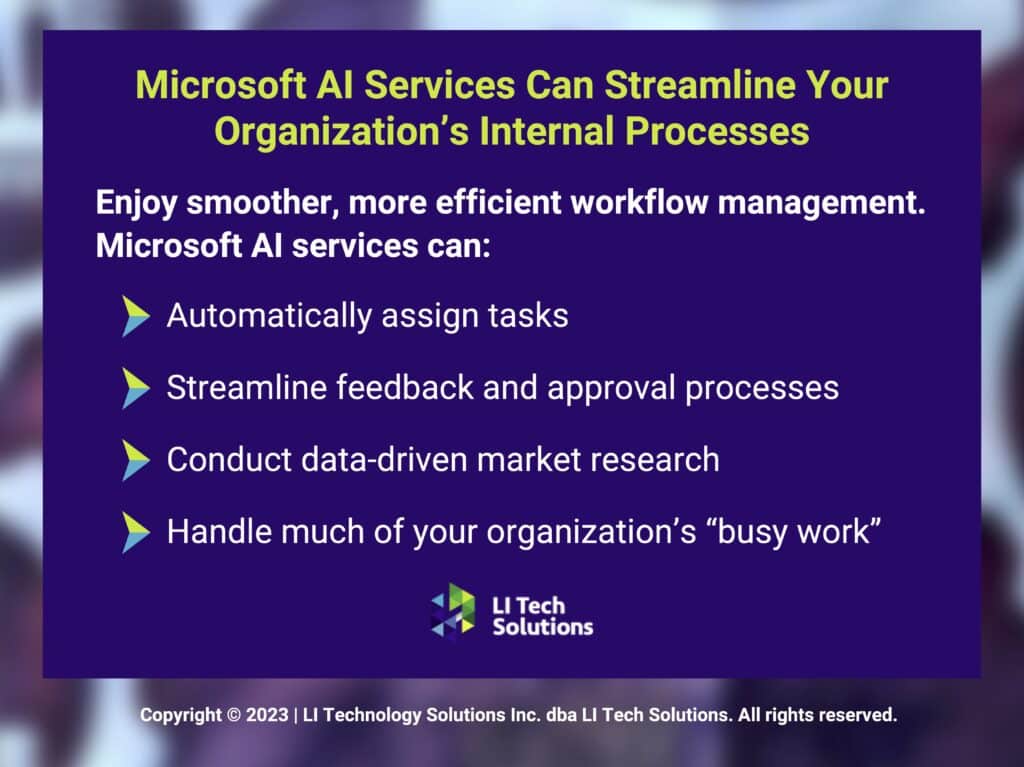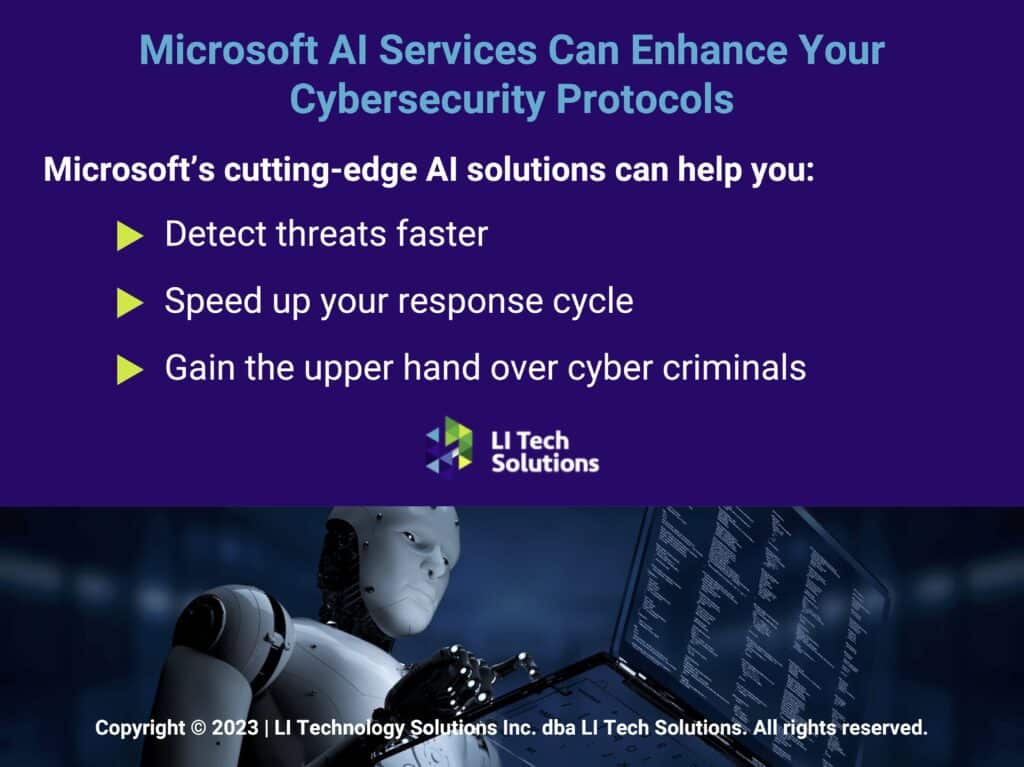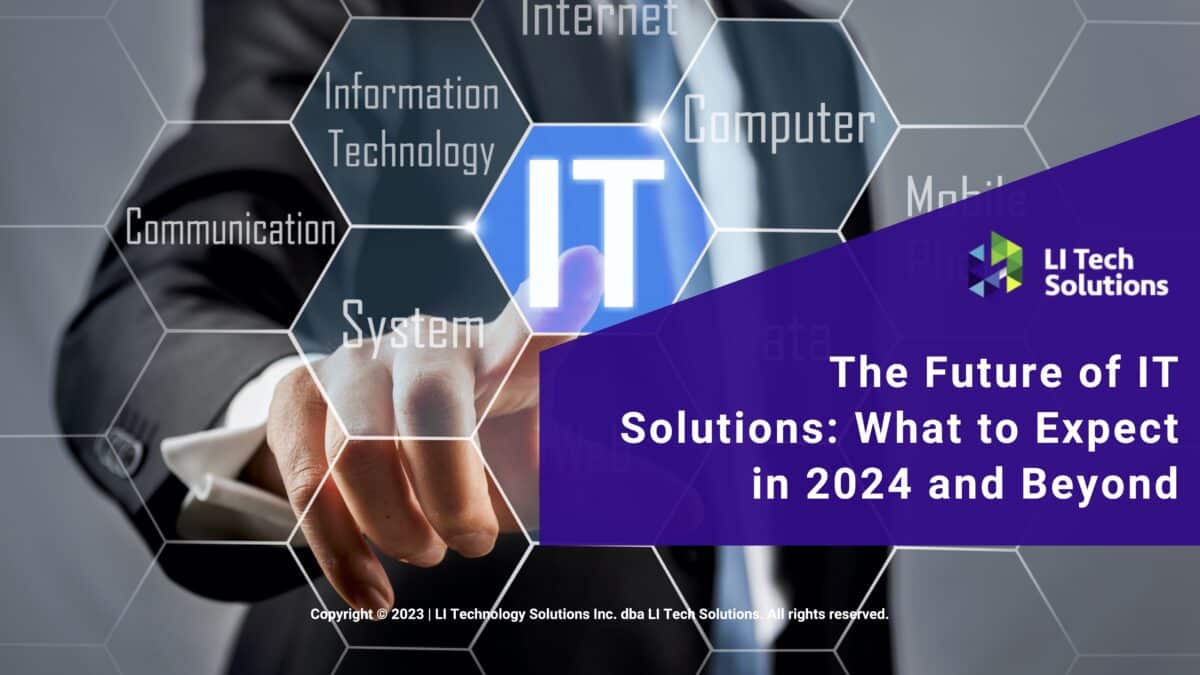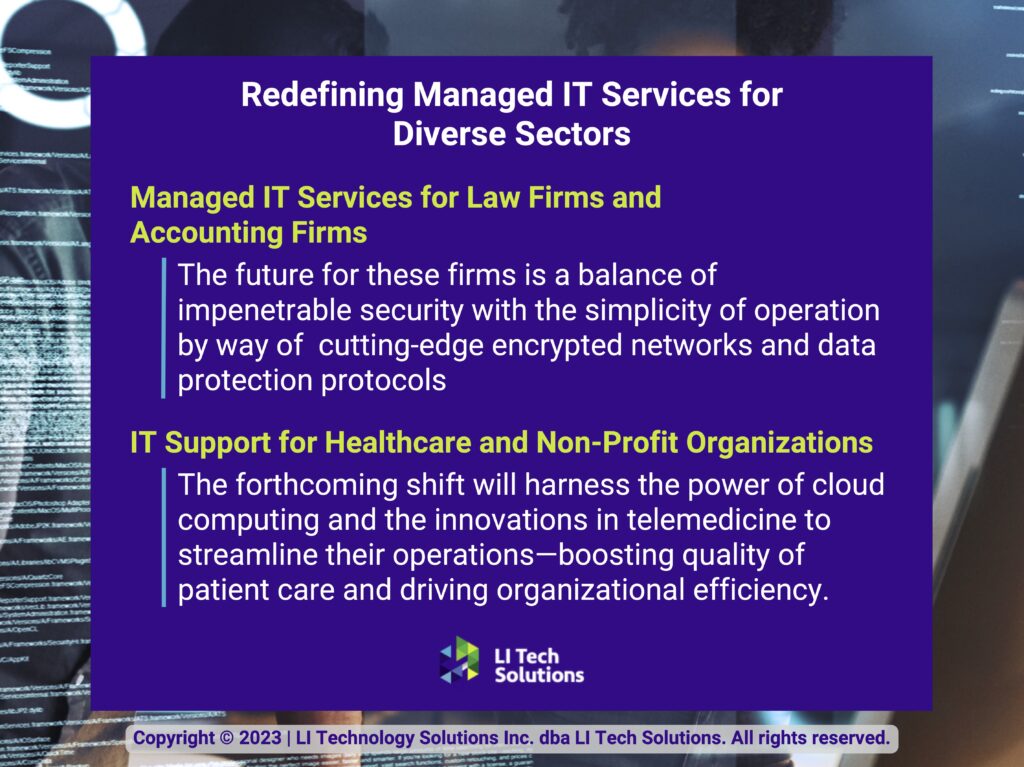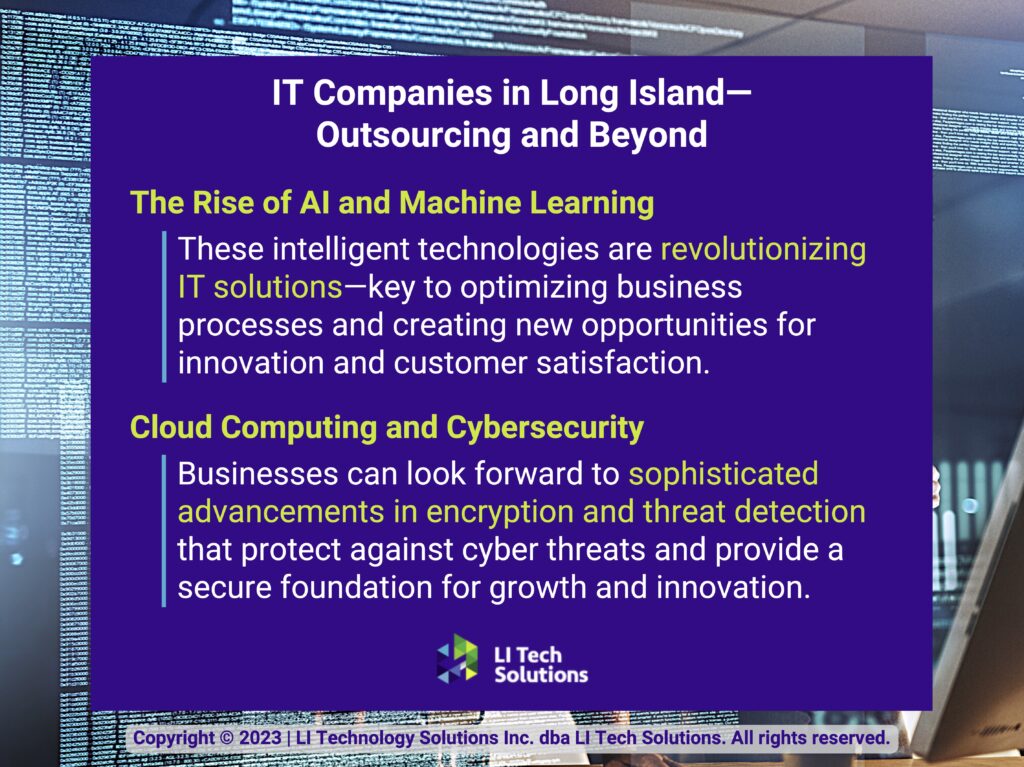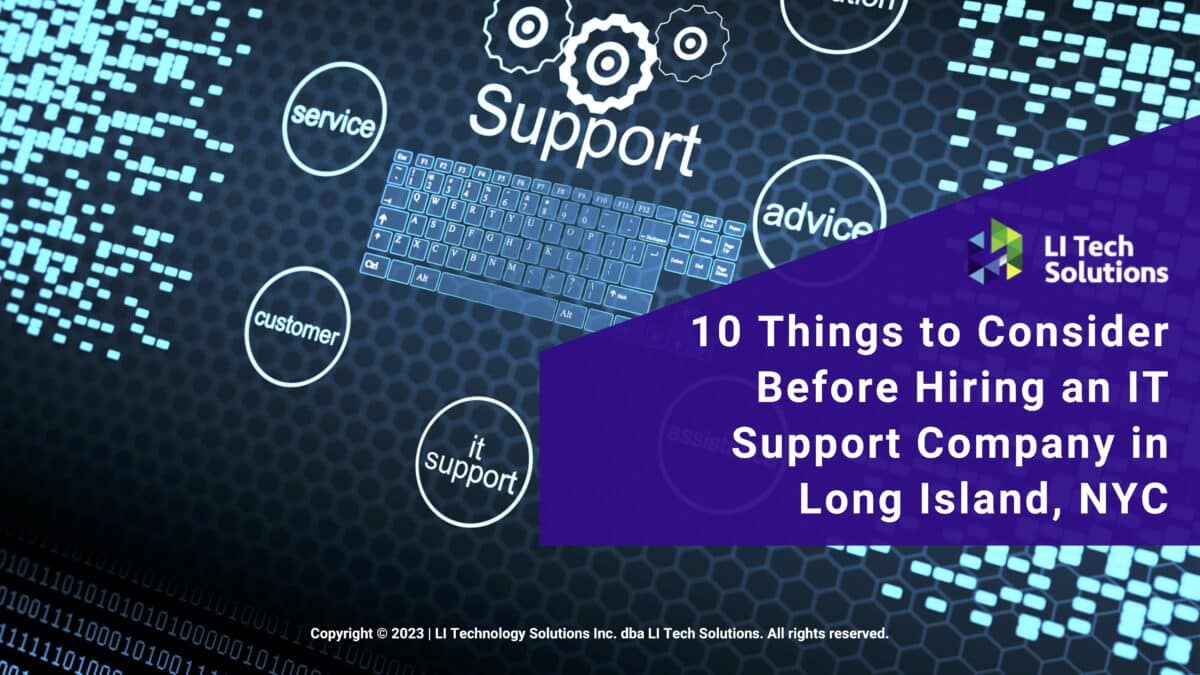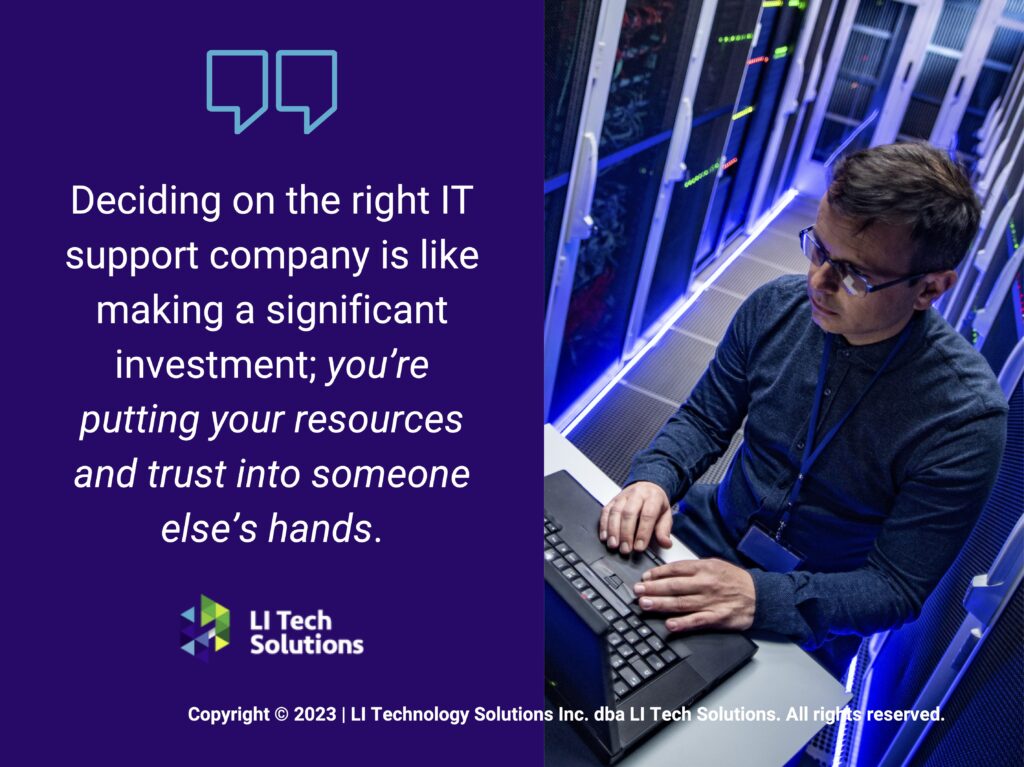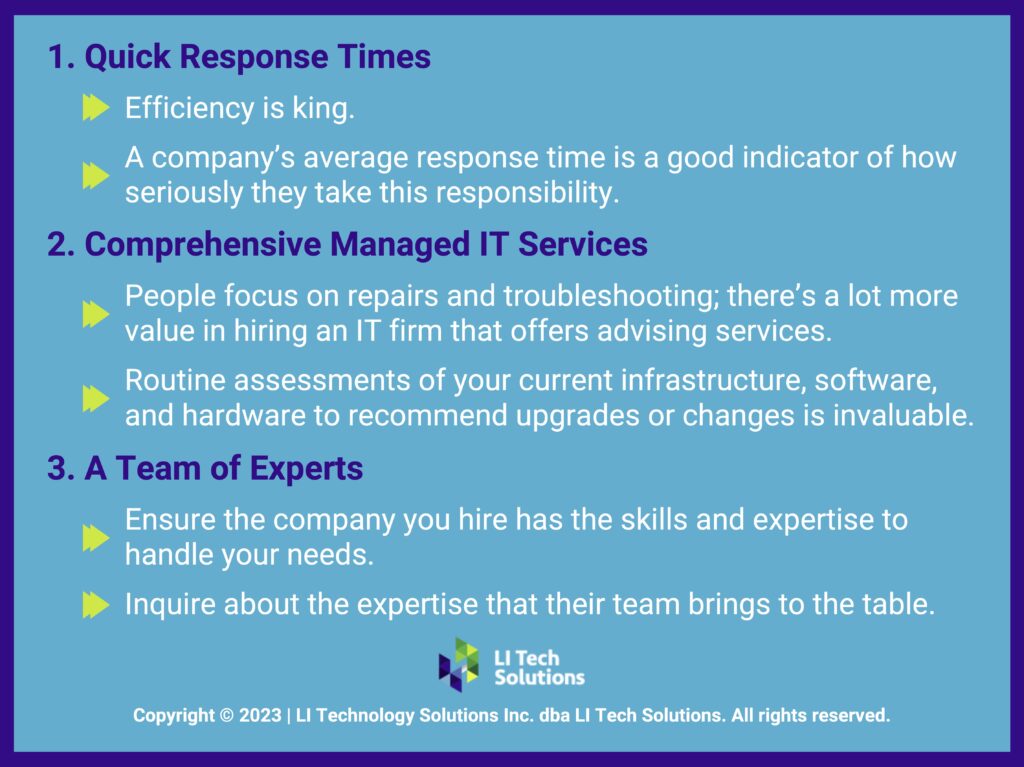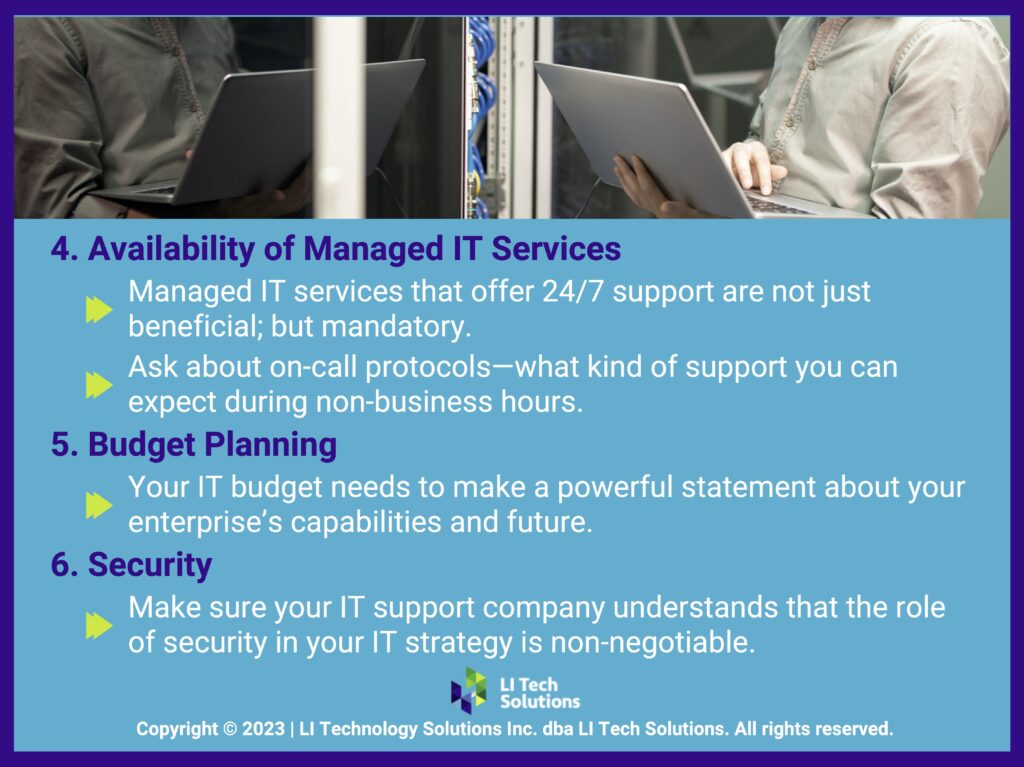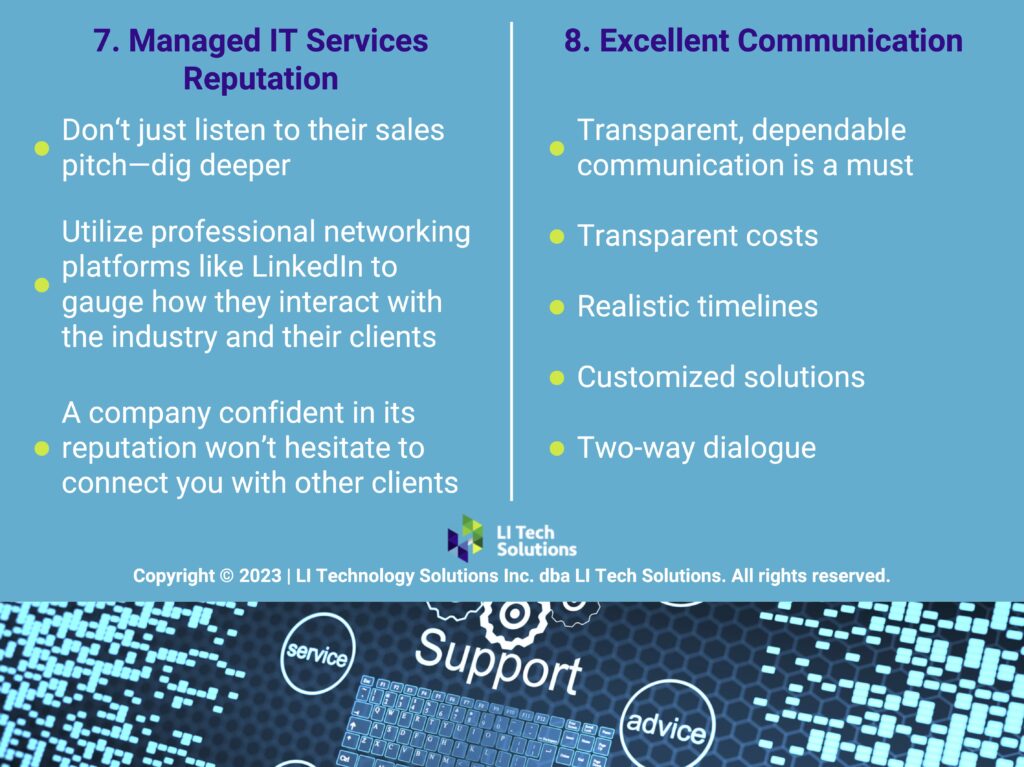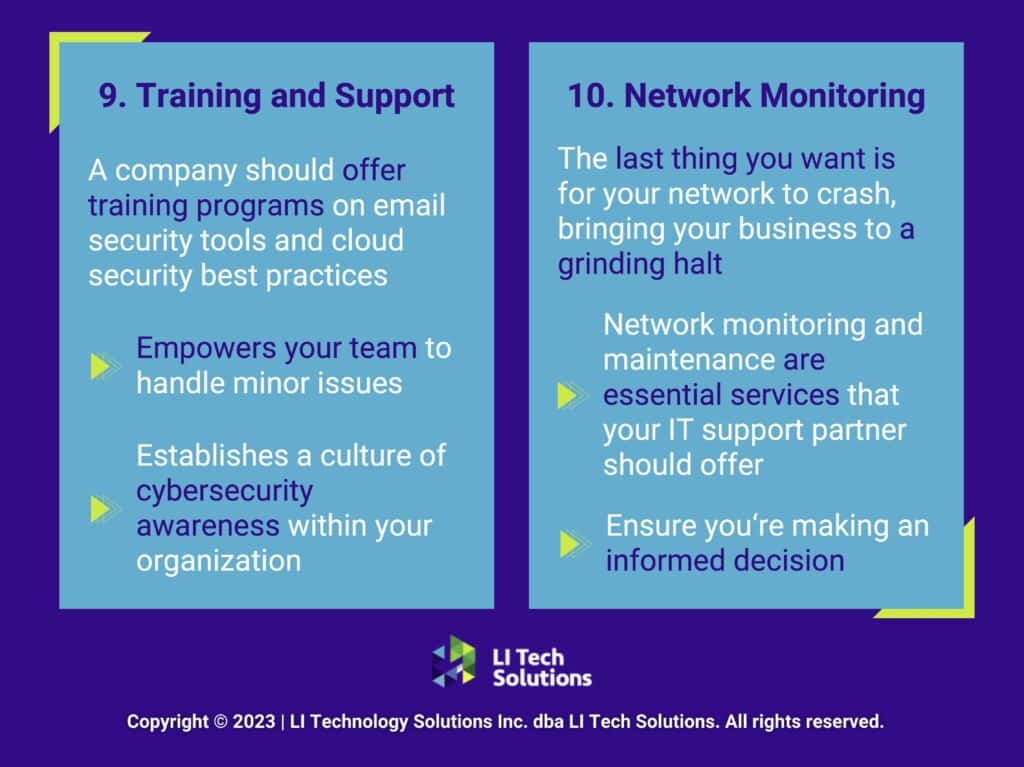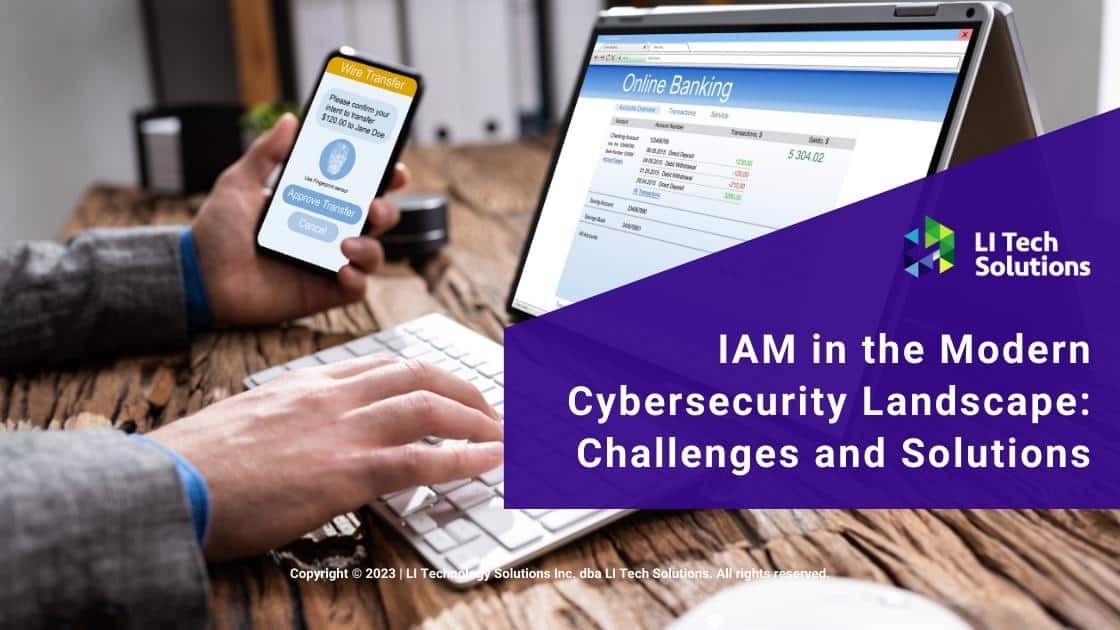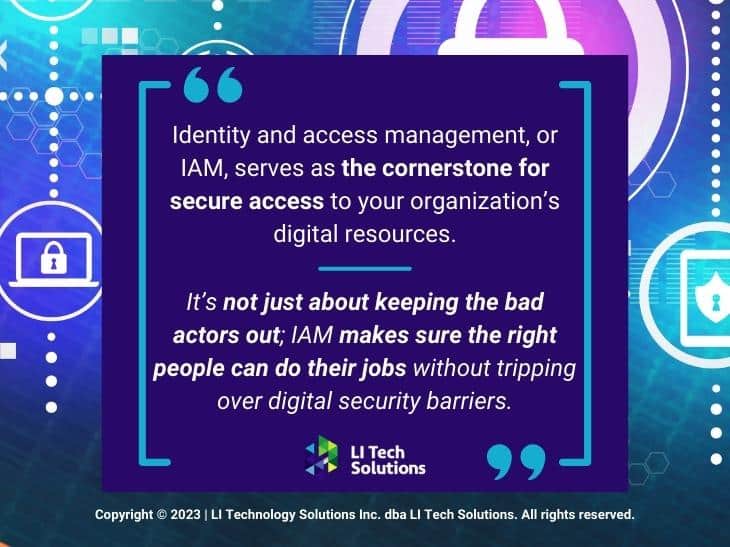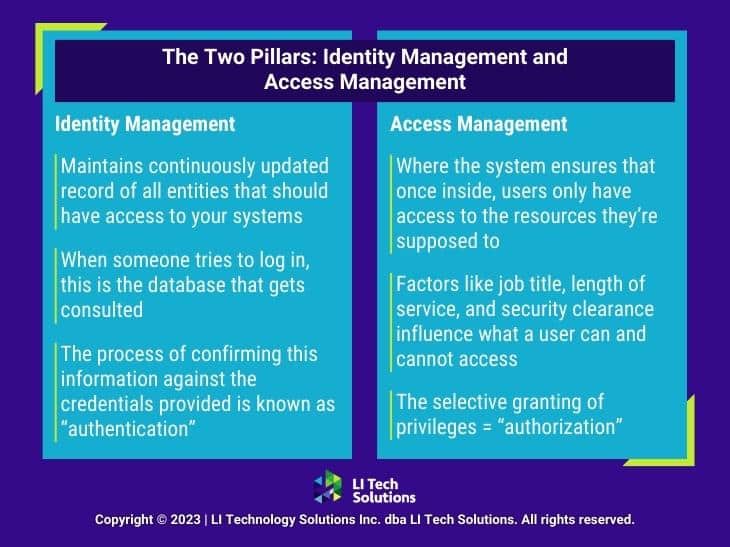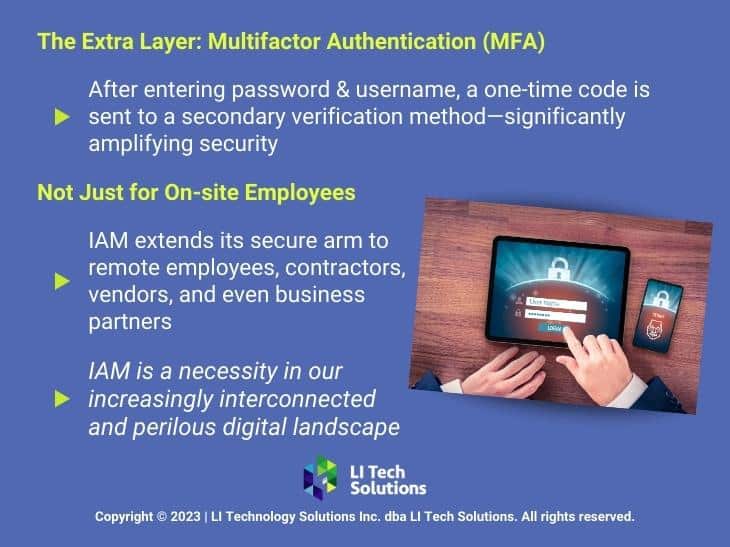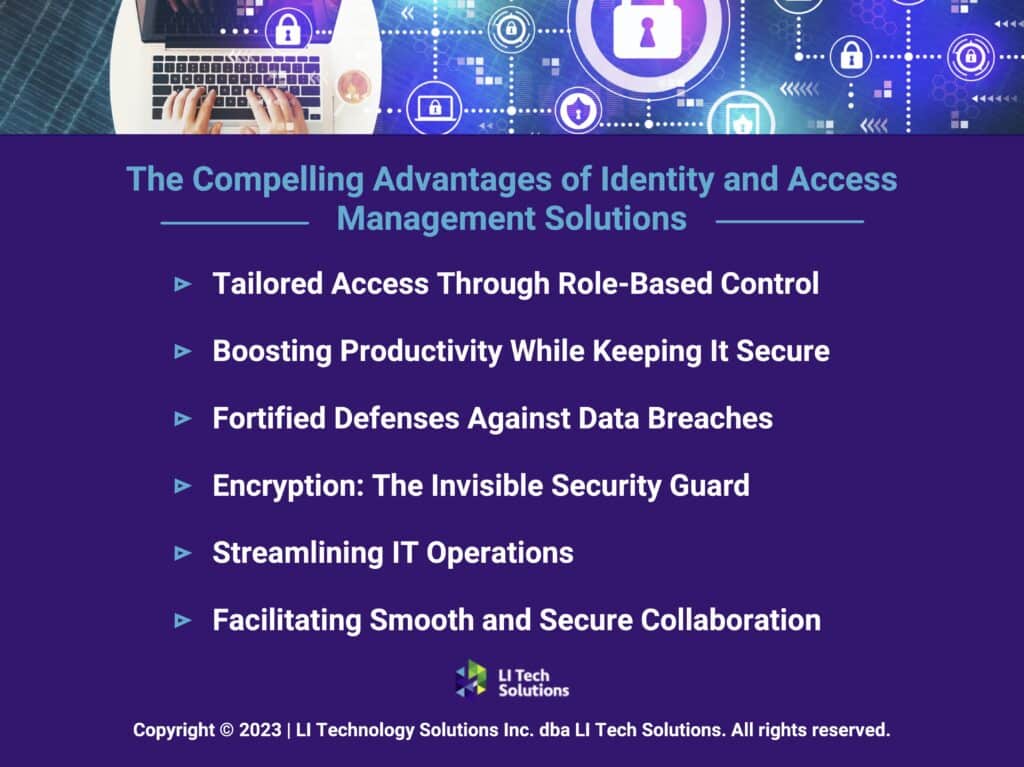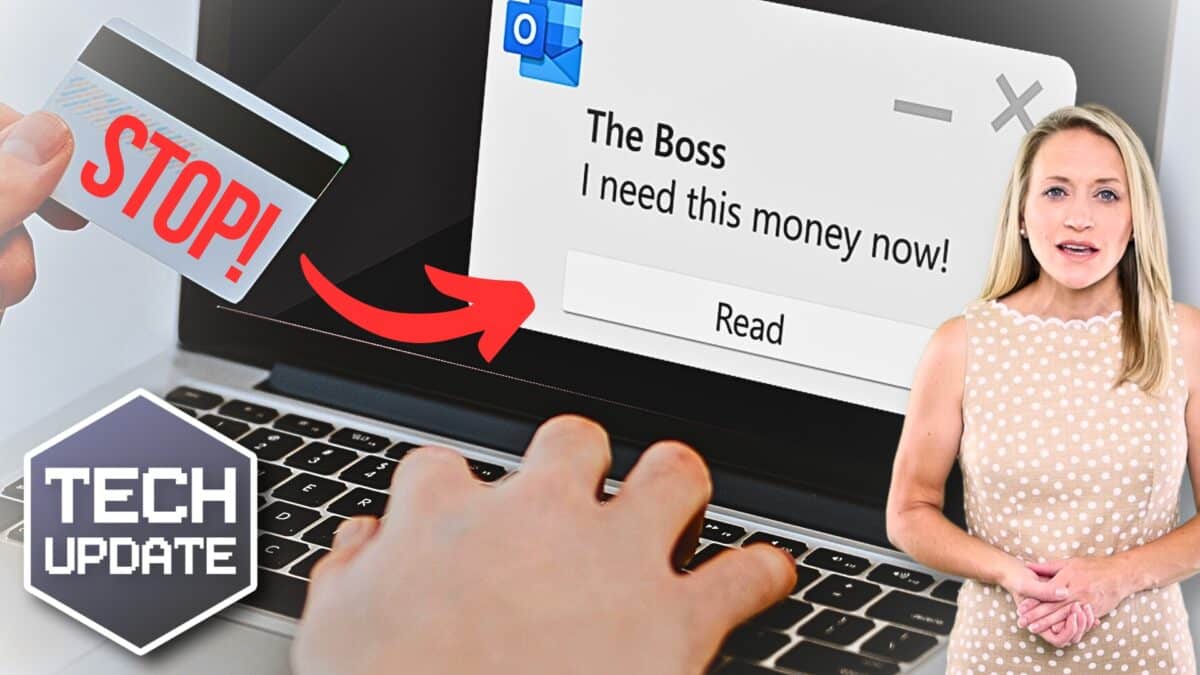Business Transformation Consultant’s Guide: Microsoft vs Google Workspace on Long Island, NY
In the bustling landscape of Long Island, NY, where business transformation consultants thrive on innovation, the tools you employ can make all the difference. At LI Tech, we understand the significance of choosing the right digital workspace. Between Microsoft and Google Workspace, each offers a suite of applications and tools designed to streamline your operations and foster collaboration. This article will compare the two, focusing on their core features, integrations, user experience, and how they can optimize your business processes. As a Long Island business transformation consultant, LI Tech can assist you in choosing what works best for your business.
Decoding Microsoft Business Applications with a Business Transformation Consultant
In the competitive arena of business transformation, having the right tools is pivotal. Microsoft Business Applications stand at the forefront, offering a suite that’s both diverse and integrated to elevate your productivity to new heights.
- Seamless Integration: Microsoft’s suite ensures that applications like Outlook, Excel, and SharePoint work together harmoniously, allowing for a streamlined workflow that connects every facet of your business.
- Advanced Analytics: With tools like Power BI, go into the analytics of your business processes to make informed decisions that propel your growth.
- Customization: Dynamics 365 allows for unprecedented customization, tailoring solutions to fit the unique processes of your business while ensuring that the software adapts to you and not the other way around.
Microsoft Workspace is a comprehensive ecosystem designed to bring out the best in your business operations.
Business IT Support on Long Island, NY
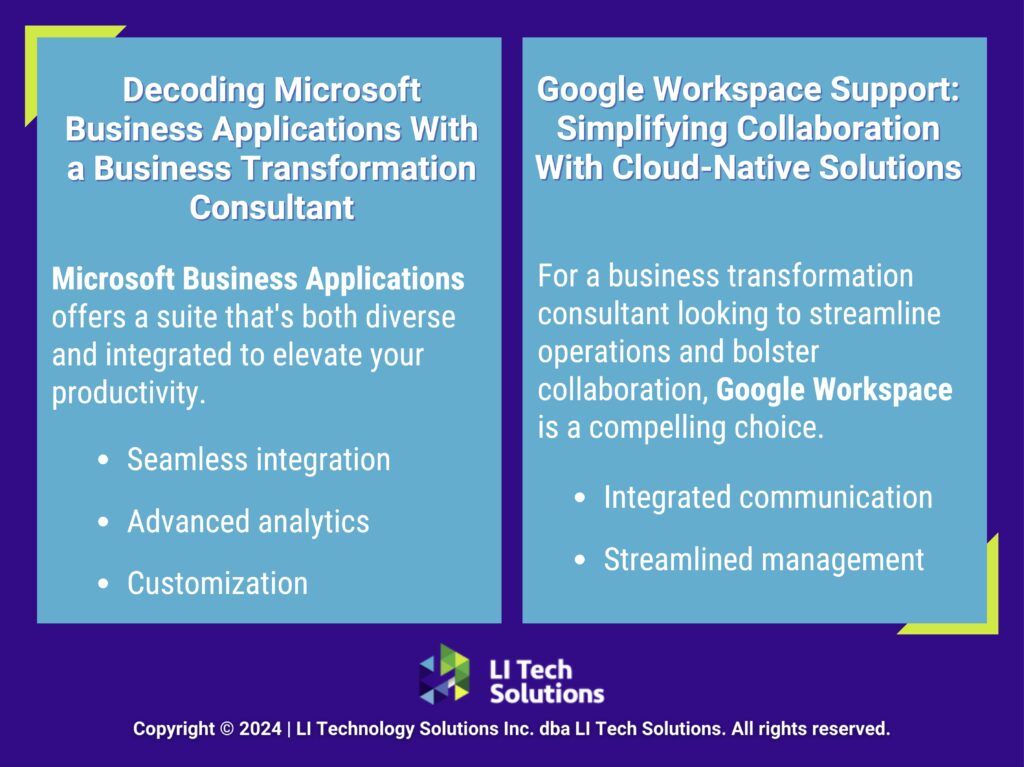
Google Workspace Support: Simplifying Collaboration with Cloud-Native Solutions
When it comes to enhancing team dynamics and driving business forward, Google Workspace emerges as a frontrunner. So, what is Google Workspace?
- Integrated Communication: Gmail and Google Meet erase the distances, providing seamless communication channels that keep teams connected—whether they’re across the room or across the globe.
- Streamlined Management: Google Drive offers a centralized repository for all your documents, simplifying file management and accessibility with robust search functionalities and organized sharing options.
For a business transformation consultant looking to streamline operations and bolster collaboration, Google Workspace is a compelling choice.
Microsoft Teams vs Google Workspace: Evaluating Communication and Collaboration
In the bustling market of Long Island enterprises, the choice between Microsoft Teams and Google Workspace can pivot a company’s trajectory in communication and collaboration. Microsoft Teams is the powerhouse for integrated communication. It offers extensive features for video conferencing, file sharing, and chatting, all within a single application that is seamlessly connected to the Office 365 suite. It’s built for businesses that require robust, enterprise-level collaboration tools that Microsoft traditionally excels in.
On the flip side, Google Workspace shines with its simplicity and user-friendly interface, making it a go-to for teams prioritizing ease of use and quick adoption. While Teams is feature-rich, Google Workspace attracts with its straightforward, no-frills approach to team communication, making it a contender for businesses that value minimalism and speed.
Long Island Cloud-Managed Services Company Discusses Microsoft’s Vision for IAM and Cloud Security
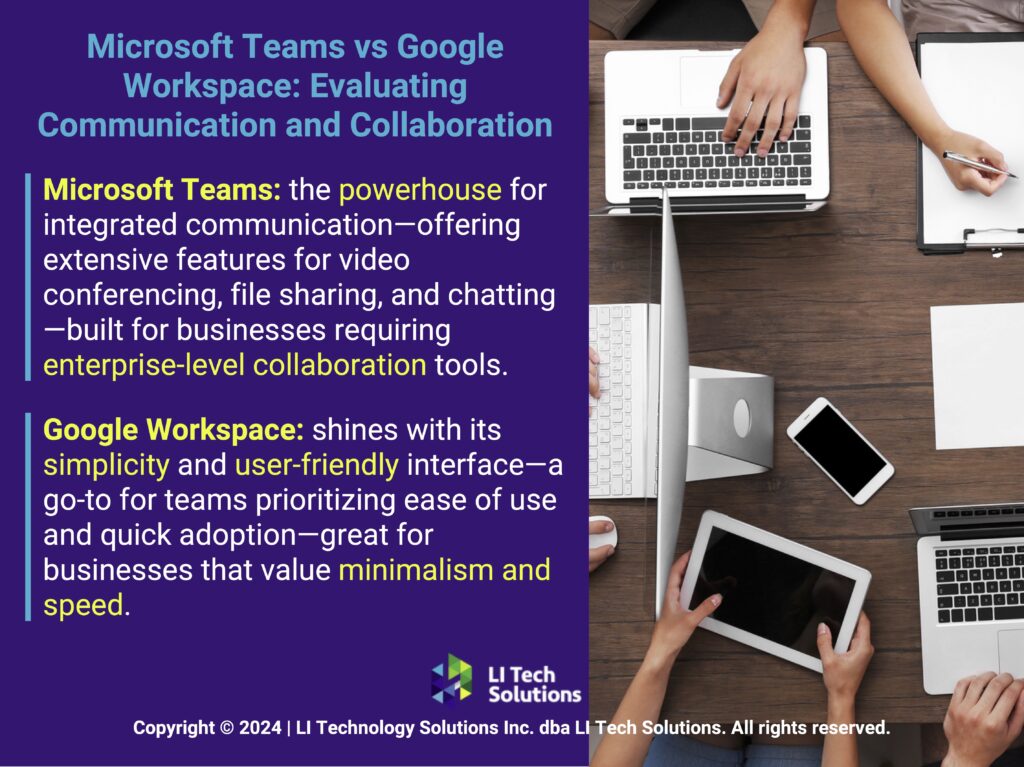
Analyzing Cost-Effectiveness and Scalability for Long Island Enterprises
For a business transformation consultant on Long Island, NY, evaluating the cost-effectiveness and scalability of digital tools is fundamental. Microsoft’s suite gives a granular level of scalability and control to businesses that anticipate they will have rapid growth and complex needs. Its pricing model gives options for companies who need a comprehensive set of tools and integrations.
On the other hand, Google Workspace presents a more straightforward scalability option with a pricing strategy that appeals more to startups and small businesses looking for cost efficiency without the need for extensive customization. Both of these platforms offer different tiers and plans to make sure that businesses of all sizes find an option that aligns with their budget and growth expectations without compromising on quality and productivity.
Best Practices for Optimizing Your IT Solutions on Long Island, NY
A Business Transformation Consultant Can Empower Your Business with the Right Tools – LI Tech Solutions
At LI Tech Solutions, we understand the intricacies of business transformation in the digital age, particularly for dynamic enterprises on Long Island, NY. As your dedicated business transformation consultant, we stand ready to guide you through the process of selecting the right digital workspace. We are committed to empowering your business with solutions that help enhance productivity while aligning with your growth trajectory. Contact us for a business transformation consultant to elevate your enterprise’s performance to its peak potential.


